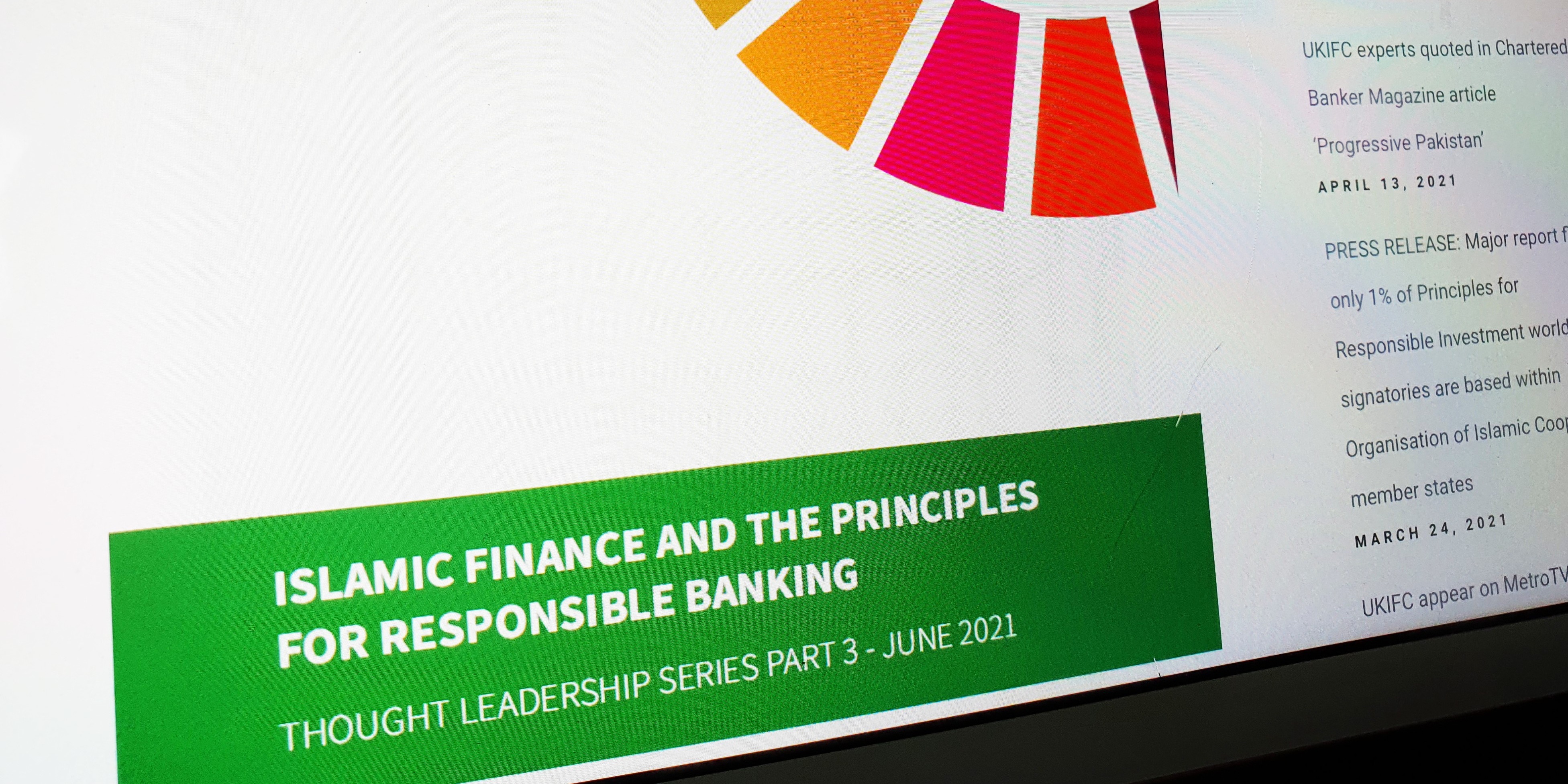U.N.’s Principles for Responsible Banking under-represented in Islamic countries, says new study
LONDON - The U.N.’s Principles for Responsible Banking, the framework that helps signatories to align with the Sustainable Development Goals and the Paris Climate Agreement, remain under-represented in countries of the Organisation of Islamic Cooperation, according to a new report.
The non-profit UK Islamic Finance Council co-authored the new report released on Thursday (June 10) in partnership with Malaysia-based International Shariah Research Academy for Islamic Finance and the Global Ethical Finance Initiative.
The report highlights that although Islamic finance is naturally aligned to responsible banking, only a small number of Islamic financial institutions and financial institutions in Organisation of Islamic Cooperation countries have signed up to the U.N.’s principles.
“There has been a lack of engagement with Islamic financial institutions and financial institutions in Organisation of Islamic Cooperation countries,” said Omar Shaikh, member of the UKIFC’s Advisory Board.
“The Islamic banking industry has considerable gaps with regards to implementation of the Principles for Responsible Banking or SDGs initiatives.”
The report, the third in a four-part series which launched last year, aims to assist and encourage active engagement in support of SDGs within the global Islamic finance industry.
It highlights the pressing need to raise awareness, in the 57-member states of the Organisation of Islamic Cooperation and beyond, of responsible banking and the benefits to be achieved by integrating Shariah compliance with sustainable finance strategies and becoming signatories to the Principles for Responsible Banking.
“This report adds another piece to the jigsaw picture that shows where exactly is Islamic finance in relation to modern global sustainability movement,” said Shaikh.
Among the financial institutions that have signed up to the principles is UK-based Gatehouse Bank that carried out an initial assessment of the areas where their business activities and operations have an impact on the environment, society, and the economy.
Andy Homer, Director of Communications at Gatehouse said that in 2020 the bank identified that some of the priority environmental needs of the UK are tackling climate change and reducing emissions.
“We made the decision to measure the carbon footprint of our operations across our three offices in accordance with the global standard for accounting emissions ISO 14064-3, independently assured by the Carbon Trust,” Homer told Salaam Gateway.
“In addition to our direct Greenhouse gas emissions, we measured significant indirect emissions including purchased energy, business travel and waste. We are now working to set targets to reduce and offset our carbon footprint and aim to become a carbon neutral organisation by the end of 2021.”
Homer explained that the rationale behind Gatehouse becoming a signatory of the U.N. PRB is the convergence of Islamic finance and ethical principles.
“We see a natural alignment with the principles of Islamic finance and society’s goals and the opportunity to become a signatory to the U.N. Principles came about at a time when Gatehouse Bank was looking to expand its ethical position to include environmental considerations and draw upon and strengthen existing links between Islamic Finance and the broader international sustainable development context.”
MORE WORK NEEDED
Despite progress from the likes of Gatehouse, Omar Shakih said there is a lot of work that needs to be done.
“Islamic banks need to be part of U.N. PRB process and contribute its unique thinking to inform global frameworks – for example, the PRB does not refer to engagement with toxic financial instruments which is an area Islamic finance can contribute its thinking to,” he said.
He also believes industry standard-setters can do more to help Islamic financial institutions implement SDGs.
“Islamic finance standard-setters like AAOIFI and IFSB can be more engaged on
sustainability and convince practitioners within the market to adopt these strategies,” he said.
$30 BLN SUSTAINABLE SUKUK OPPORTUNITY
Green and sustainable sukuk and financing instruments have emerged over the last few years, from landmark issuances from sovereigns like Indonesia to the Islamic Development Bank, and corporates.
“We have seen significant demand for green sukuk and we have seen activity in green financing instruments,” said Shaikh. “UKIFC believes there is a $30 billion plus opportunity for sustainable sukuk over the next few years.”
However, he said that the longer-term challenge of climate change and its impact should be part of the agenda for Islamic financial institutions and the countries of the Organisation of Islamic Cooperation.
“The threat of climate change is a massive threat to all and should galvanise the Islamic finance community,” said Shaikh.
Adding to this, he said the changing regulatory environment where financial institutions will need to disclose their carbon activities will require internal change.
“What is key at Islamic financial institutions and within the Organisation of Islamic Cooperation is the mindset change,” he explained.
“The Maqasid al Shariah and ESG principles complement each other and we as an industry need to converge these principles more. The tactically astute Islamic finance practitioners will see where the commercial opportunity lies here.”
Shaikh said UKIFC will play its role to educate practitioners and other stakeholders about how Islamic finance can implement SDGs.
“We here at the UKIFC are working on progressive strategic initiatives with key partners including State Bank of Pakistan, UK Government, Islamic Development Bank and the Global Ethical Finance Initiative and have curated a specific programme for COP26 coming to Glasgow in November.”
© SalaamGateway.com 2021 All Rights Reserved
